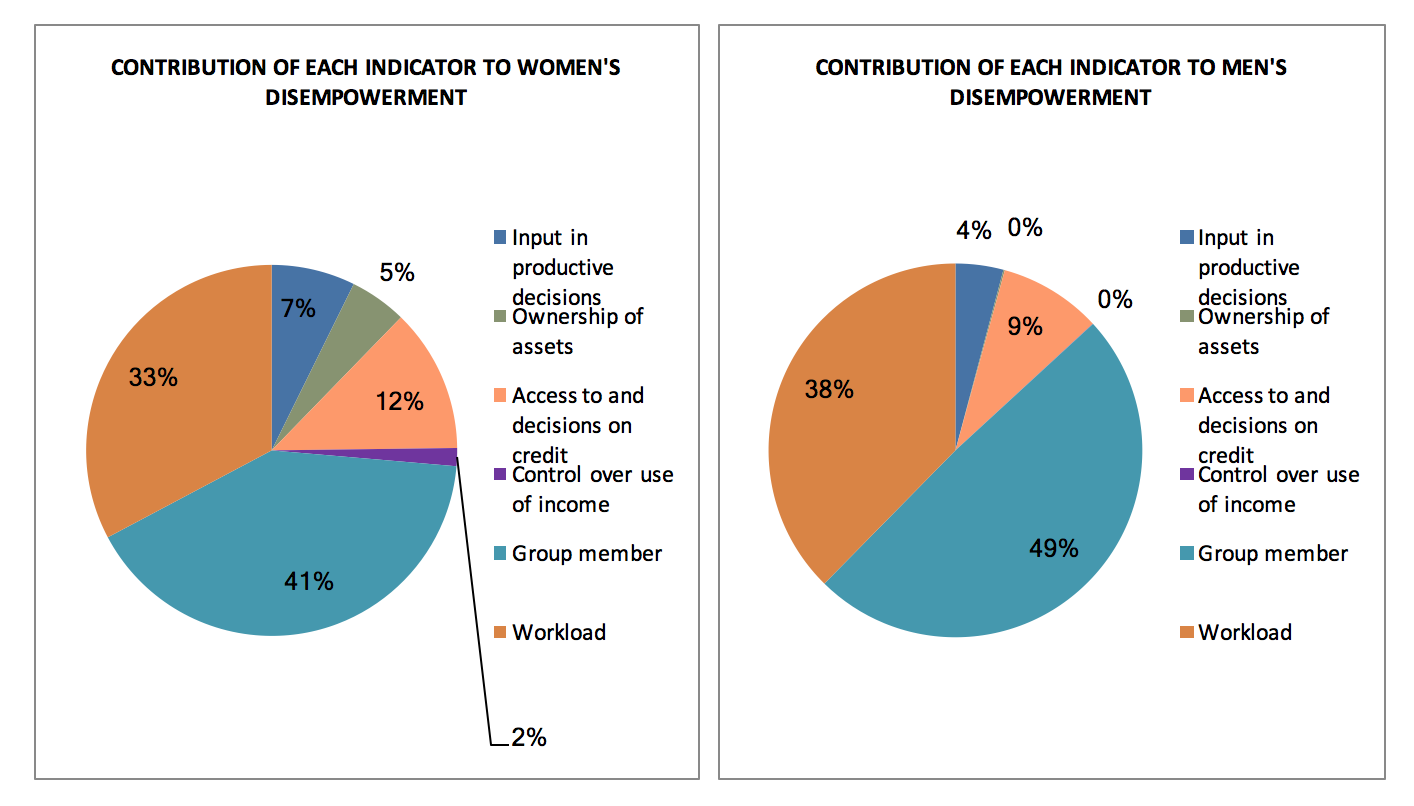This week's International Women’s Day 2017 celebrates the social, economic, cultural, and political achievements of women. Despite significant strides toward gender equality in Bangladesh, there are still many barriers to women’s participation in the agriculture sector. Evidence from IFPRI’s research in Bangladesh shows that an increase in women’s empowerment in agriculture helps to move people out of poverty; improve household, child, and maternal dietary diversity; and increase agricultural diversity.
Ministry pilot project links agriculture, nutrition, and gender
Motivated by this research-based evidence, IFPRI designed the Agriculture, Nutrition, and Gender Linkages (ANGeL) project, a two-year effort piloted by the Bangladesh Ministry of Agriculture through its Department of Agricultural Extension. ANGeL is evaluating the impact of three types of interventions for promoting nutrition and gender-sensitive agriculture:
- Agriculture Production—Facilitating the production of the high-value food commodities rich in essential nutrients through the diversification of crops, livestock, and the like.
- Nutrition Knowledge—Conducting high-quality training in behavior-change communication to improve people’s knowledge of nutrition.
- Gender Sensitization—Undertaking activities to empower women and raise their status while encouraging gender parity.
Results highlight women’s persistent disempowerment

Before launching ANGeL’s field-level activities, empowerment data were collected from 4,000 households across 16 districts in rural Bangladesh.
ANGeL baseline results (chart, left) show that 69 percent of women are disempowered. In other words, only 31 percent of women are empowered—10 percent less than the share of men who are empowered (41.5 percent).
In fact, women are more disempowered in all indicators of empowerment, except for group membership:

Specifically, dissatisfaction with available time for leisure activities (33 percent) and lack of association with social groups (41 percent) account for nearly 75 percent of women’s disempowerment. The leading constraints for both men and women include group membership, dissatisfaction in amount of leisure time, and lack of access to credit and input on decisions about how to use credit.
How do empowerment findings under the ANGeL Project compare nationally?
IFPRI’s 2015 national household survey results show that nearly half of all women are empowered (47.2 percent), while well under a third of the women in the ANGeL sample are. It makes sense that women’s empowerment is relatively low among these women, because they are young (mothers of children under two), and age is seen to be significantly associated with women’s empowerment (Sraboni et al. 2013; Alkire et al. 2012).
Experimenting with field-level empowerment models
ANGeL’s baseline results show that women’s empowerment warrants greater attention. Changes in empowerment, however, cannot take place in a vacuum. To improve women’s empowerment, women need opportunities to exercise this empowerment through joint decision making with their husbands about what to spend money on, what crops to grow, and so on. In other words, household decision makers play a key role in facilitating improvements in women’s empowerment.
ANGeL is using government agriculture extension to facilitate field-level trainings on agriculture production, nutrition knowledge, and gender sensitization. Uniquely, ANGeL trainings are bringing everyone to the same table—husbands, wives, and other key decision makers such as mothers-in-law—to discuss traditionally gendered domains such as agriculture production (male-dominated) and nutrition (female-dominated). Inviting families to be part of the same conversation on nutrition, agriculture production, and household power dynamics gives men and women in the household more opportunities to weigh in equally on decisions that they likely had little or no input on before ANGeL.
Evaluating empowerment pathways in Bangladesh
On a national level, we have seen remarkable gains in women’s empowerment in the short span of three and a half years—from 27.1 to 47.2 percent (IFPRI BIHS 2011/12 to 2015). Nonetheless, gender inequality remains significant and multidimensional, as ANGeL’s baseline results show. Indeed, projects like ANGeL that use a rigorous impact evaluation framework can provide a “before” and “after” portrait of empowerment. This can be instructive for figuring out specific pathways to improve women’s empowerment and gender parity between men and women, and how to add value to women’s contributions in Bangladesh’s largest sector—agriculture.
For International Women’s Day and every day, IFPRI-Bangladesh is committed to #BeBoldForChange by continuing to design, evaluate, and advocate for empowering initiatives. Next International Women’s Day, IFPRI will use evidence from this study to see how ANGeL interventions have moved the needle to improve women’s empowerment to inform the design of a national program.
Akhter Ahmed is the IFPRI Country Representative in Bangladesh, Chief of Party of the Bangladesh Policy Research and Strategy Support Program (PRSSP), and a Senior Research Fellow in IFPRI's Poverty, Health, and Nutrition Division. Julie Ghostlaw is a Program Coordinator and Nusrat Hossain a Senior Research Analyst with the PRSSP.For more information on the ANGeL project, please contact Akhter Ahmed (a.ahmed@cgiar.org).